Cher Monsieur le Président, chers invités, chers collègues,
C’est une habitude très régulière de voir les orateurs officiels allemands s’excuser dans les pays étrangers pour le passé de l’Allemagne. Heureusement je ne suis pas fonctionnaire !
Alors pardonnez-moi s’il vous plaît de ne pas suivre cette règle de fer des interventions allemandes à l’étranger. Je pense que notre problème aujourd’hui n’est pas notre passé. Nos problèmes sont les événements du temps présent, ceux d’aujourd’hui, pas d’hier. En d’autres termes, les fonctionnaires allemands s’excusent pour la Seconde Guerre mondiale alors qu’ils planifient et mènent une politique de nuisance contre notre continent européen, alors qu’ils imposent un système de colonialisme financier libéral à l’Europe de l’Est et du Sud-Est et se préparent à une nouvelle confrontation sérieuse avec le monde russe. C’est – je ne trouve pas d’autre terme – de l’hypocrisie.
Ce qui se passe aujourd’hui au nom de ma nation est honteux. J’appellerais cela de la « publicité mensongère ». Que comprenons-nous habituellement sous ce terme ? Si je vous offre un produit et que vous trouvez plus tard que dans la boîte, il y a quelque chose d’autre, probablement de qualité inférieure, c’est de la « publicité mensongère ». C’est aussi le cas lorsque vous voulez acheter du poulet sur le marché, mais qu’on vous donne de la viande de chien ou de chat à la place par exemple. Pour le traduire en politique, dans ses relations étrangères, Berlin dit « intérêt allemand » mais en réalité, il faut entendre « trans-atlantisme ». Et il ne faut pas oublier que quand nous disons Europe, nous voulons dire Union européenne. En économie, Berlin propose des « valeurs commerciales allemandes » alors qu’il faut plutôt entendre « Wall Street ». C’est de la « publicité mensongère » dans sa forme la plus pure.
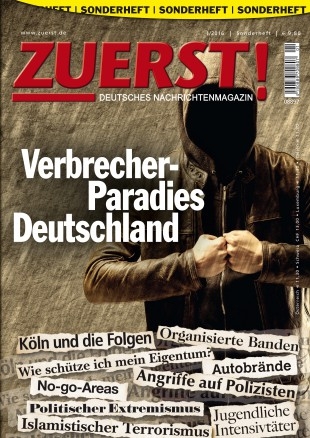 Mais il existe un exemple très connu de « publicité mensongère » : la « Deutsche Bank ». Beaucoup de gens – peut-être même certains ici dans l’auditoire – pensent que c’est notre banque nationale. En raison de son nom. Cela semble presque aussi stable et fiable qu’une « horloge suisse ». Mais la « Deutsche Bank » est une banque privée ordinaire, fortement impliquée dans des projets de spéculation hyper-capitalistes de Wall Street, une institution financière mondialiste où le mot « allemand » n’est qu’une marque. Notre banque nationale est la « Bundesbank » – « banque fédérale ». Bien sûr, « Bundesbank » semble moins attrayant que « Deutsche Bank ». Mais c’est exactement l’essence de la « publicité mensongère ».
Mais il existe un exemple très connu de « publicité mensongère » : la « Deutsche Bank ». Beaucoup de gens – peut-être même certains ici dans l’auditoire – pensent que c’est notre banque nationale. En raison de son nom. Cela semble presque aussi stable et fiable qu’une « horloge suisse ». Mais la « Deutsche Bank » est une banque privée ordinaire, fortement impliquée dans des projets de spéculation hyper-capitalistes de Wall Street, une institution financière mondialiste où le mot « allemand » n’est qu’une marque. Notre banque nationale est la « Bundesbank » – « banque fédérale ». Bien sûr, « Bundesbank » semble moins attrayant que « Deutsche Bank ». Mais c’est exactement l’essence de la « publicité mensongère ».
En Europe centrale, nous nous sommes tellement habitués à ces mensonges, à ces interprétations erronées de la réalité qu’il nous est très souvent difficile de faire la distinction entre la réalité virtuelle de l’étiquetage frauduleux et le monde réel.
La crise financière mondiale de 2008 aurait dû nous ouvrir les yeux. Pour la première fois dans l’histoire moderne, le gouvernement allemand renflouait une banque privée, la « Commerzbank » la deuxième plus grande banque d’Allemagne. En d’autres termes : l’argent réel du contribuable, généré par les travailleurs allemands, les employés, les petites et grandes entreprises a dû combler un énorme trou causé par l’hyper-spéculation virtuelle et les opérations financières risquées. La confiance que nous avions auparavant dans notre secteur bancaire soit-disant « solide » a été rompue en 2008 et dans les années qui ont suivies.
Malheureusement aujourd’hui, nous trouvons ce principe virtuel de « publicité mensongère » dans l’ensemble de l’espace économique européen, en particulier en ce qui concerne l’Europe de l’Est et du Sud-Est. Ces pays ont été soumis à de vastes campagnes de publicité pour rejoindre l’Union européenne et sa sphère économique. Interrogez les Tchèques, les Hongrois, les Bulgares ou les Roumains sur les promesses de Bruxelles et de Berlin. Ils en ont payé le prix fort. Leur industrie a été attaquée, leurs valeurs ont été violées et récemment ils sont devenus une autoroute géante pour des masses d’immigrants clandestins traversant la soi-disant « route des Balkans ».
Ou vérifiez aujourd’hui les principaux médias ukrainiens et lisez leurs attentes à se rapprocher un peu plus de la super-entité bruxelloise.
Ce n’est pas l’Europe des Européens, c’est l’Union européenne du secteur financier international. Ce n’est pas une coïncidence si les institutions financières mondiales encouragent par tous les moyens la désintégration de nos sociétés. En Allemagne, les grandes compagnies globalistes encouragent les migrations massives malgré le danger. Elles encouragent la fuite des cerveaux de l’Europe du Sud-Est vers le centre où, par exemple, un enseignant roumain gagne de l’argent en servant de la bière aux étudiants saouls et aux touristes à Berlin, Cologne ou Hambourg. C’est un système qui détruit toute identité collective en Europe. Les identités collectives sont également importantes en matière de sécurité sociale. À la fin, il ne restera qu’un continent sans nom et sans visage de quelques centaines de millions d’individus, ou peut-être mieux, de consommateurs. Mais même s’il n’y aura plus d’« Allemagne » il y aura toujours une « Deutsche Bank ».
Comment contrer un tel développement ? Comment le combattre ? Comment développer un système immunitaire européen ? La gauche politique authentique en Europe, comme de nombreux groupes socialistes, se bat pour imposer des règles strictes et des sanctions draconiennes aux entités financières globalistes. Ils se battent aussi contre les systèmes financiers virtuels, ces systèmes de capitalisme de casino. Cela va-t-il améliorer la situation ? Peut-être un peu. Mais malheureusement, dans de nombreux cas, la gauche sous-estime l’importance des identités collectives. Les forces eurosceptiques conservatrices luttent contre la désintégration de leurs identités nationales et culturelles. Mais elles sous-estiment très souvent l’importance de limiter le pouvoir du globalisme financier.
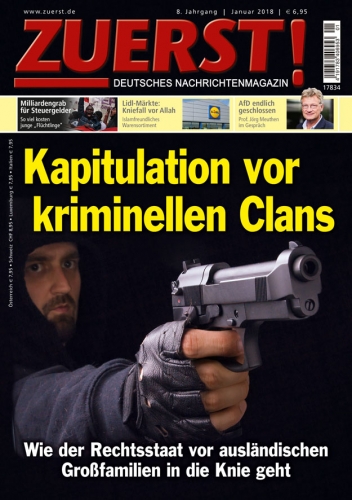 Mais l’un sans l’autre ne fonctionnera pas à la fin. Le système de l’économie virtuelle va de pair avec le système de désintégration des sociétés. Le marché libre vient avec la société ouverte et vice versa.
Mais l’un sans l’autre ne fonctionnera pas à la fin. Le système de l’économie virtuelle va de pair avec le système de désintégration des sociétés. Le marché libre vient avec la société ouverte et vice versa.
Comme je l’ai dit au début : il est dommage que Berlin soit la principale force du marché ouvert et de la société ouverte en Europe. Nous pourrions même dire : Angela Merkel est le bulldozer de la désintégration.
L’Allemagne pourrait jouer un rôle positif, si elle retrouve sa propre identité. C’est exactement là où le vrai travail des Allemands commence, enfin ceux qui s’opposent à la politique domination de Berlin. Être ici et discuter avec vous de notre nouvelle Europe, l’Europe européenne, est un bon début. Une Europe, où un fonctionnaire allemand sera capable et désireux de commencer un discours sans s’excuser.
Manuel Ochsenreiter
Centre allemand d’études eurasiennes
Traduit par Hervé relu par Cat pour le Saker Francophone
Source: http://lesakerfrancophone.fr



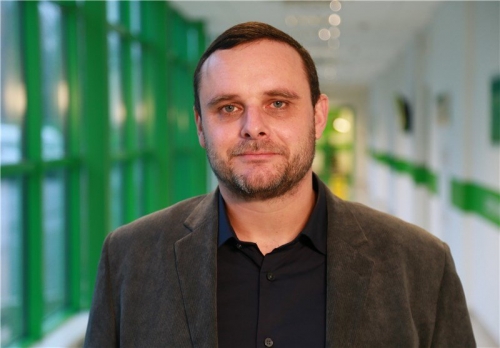
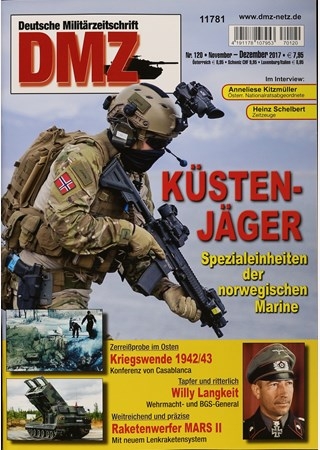

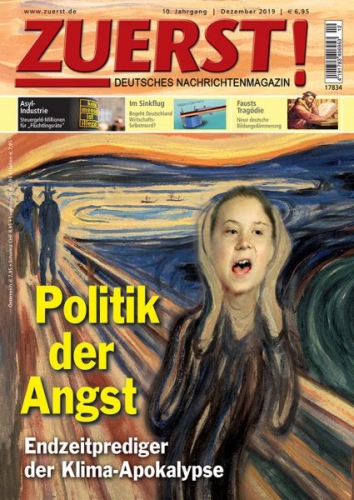
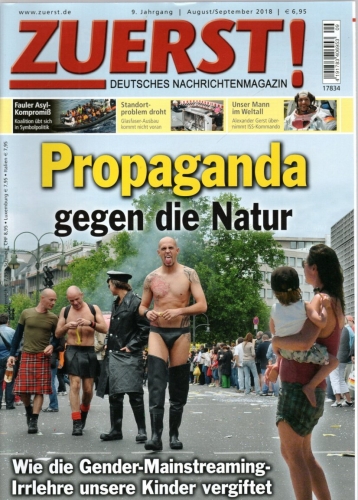
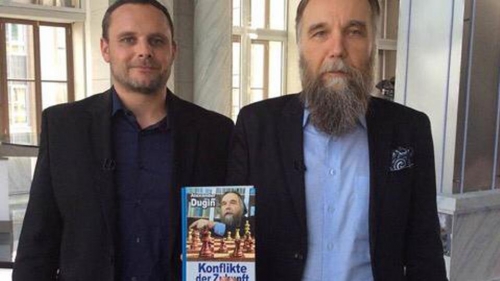

 del.icio.us
del.icio.us
 Digg
Digg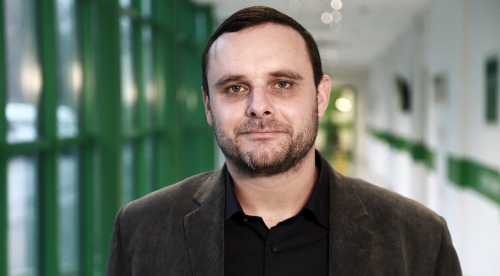
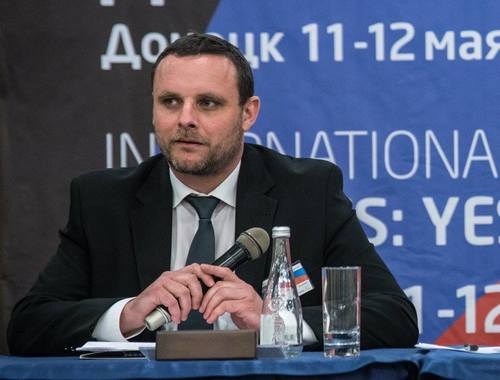
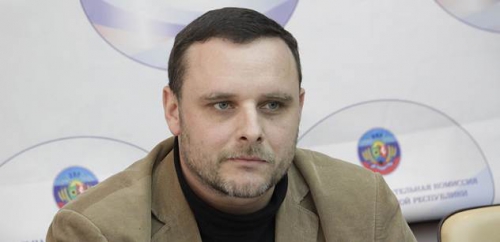
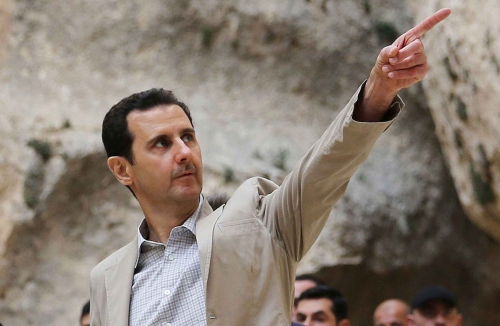
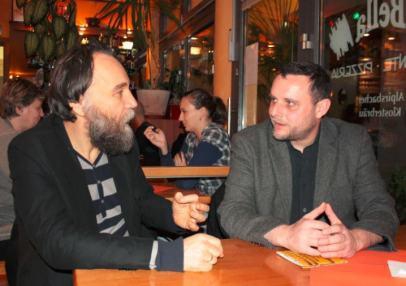
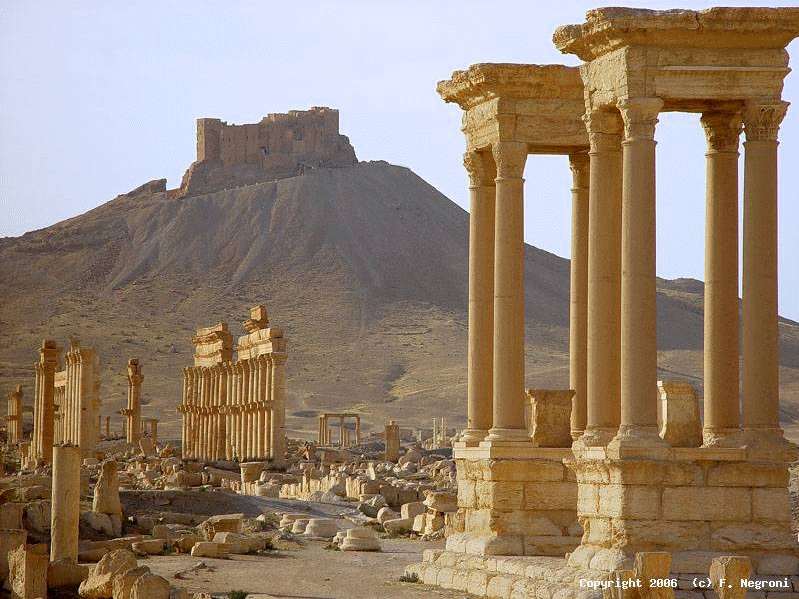
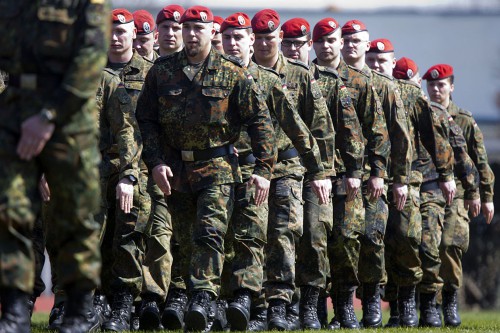
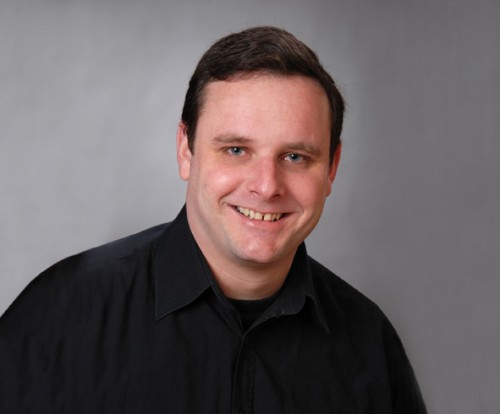

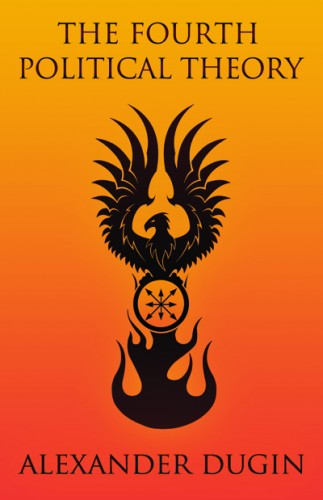 Every established intellectual, politician or media company moves inside this totalitarian liberal system. For example you will not find any established political party in the German parliament that doesn´t claim to be “also liberal”. Our universities “research” about “identities”, “gender”, and “culture” to change this or that. The new liberal types of human being don´t have a heritage, homeland or cultural identity. Even the gender can be changed. We could consider that as a type of slapstick comedy if it wouldn´t be so serious, because it means a type of destruction of basics and values, which might be hard to repair.
Every established intellectual, politician or media company moves inside this totalitarian liberal system. For example you will not find any established political party in the German parliament that doesn´t claim to be “also liberal”. Our universities “research” about “identities”, “gender”, and “culture” to change this or that. The new liberal types of human being don´t have a heritage, homeland or cultural identity. Even the gender can be changed. We could consider that as a type of slapstick comedy if it wouldn´t be so serious, because it means a type of destruction of basics and values, which might be hard to repair.